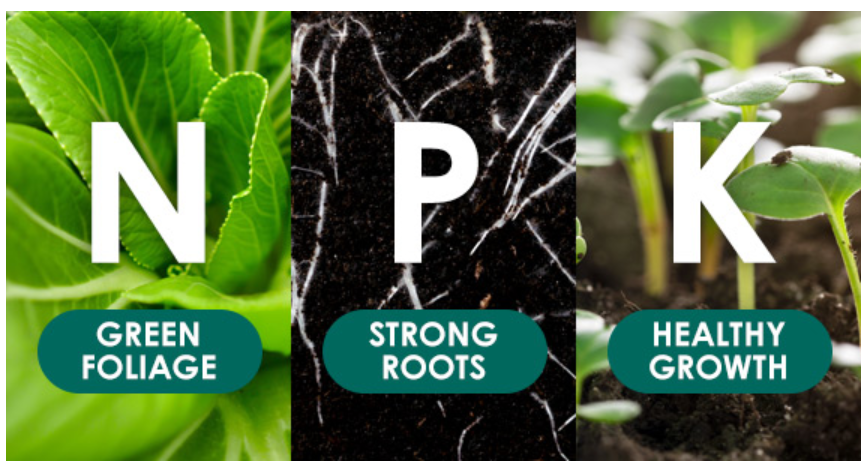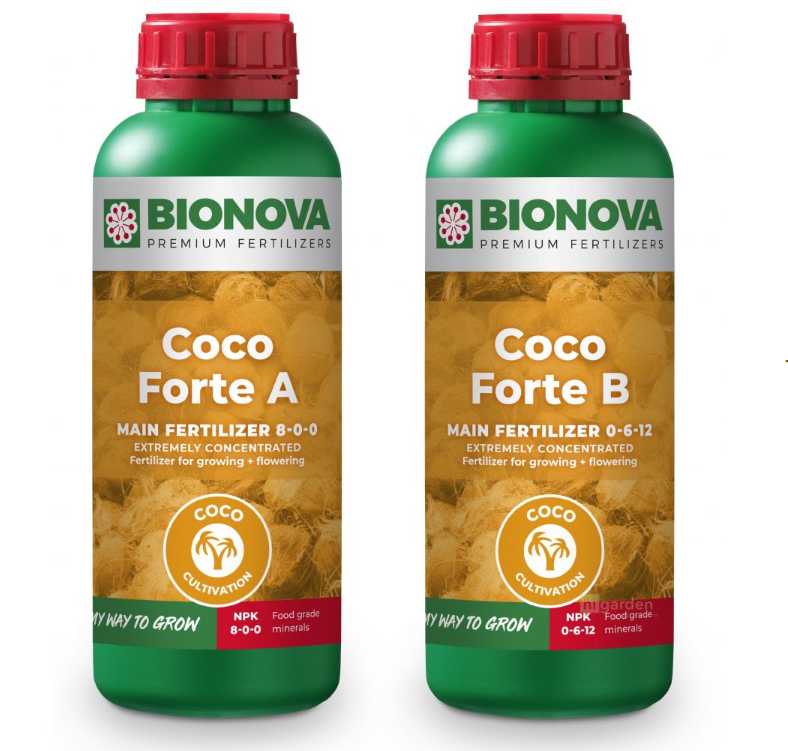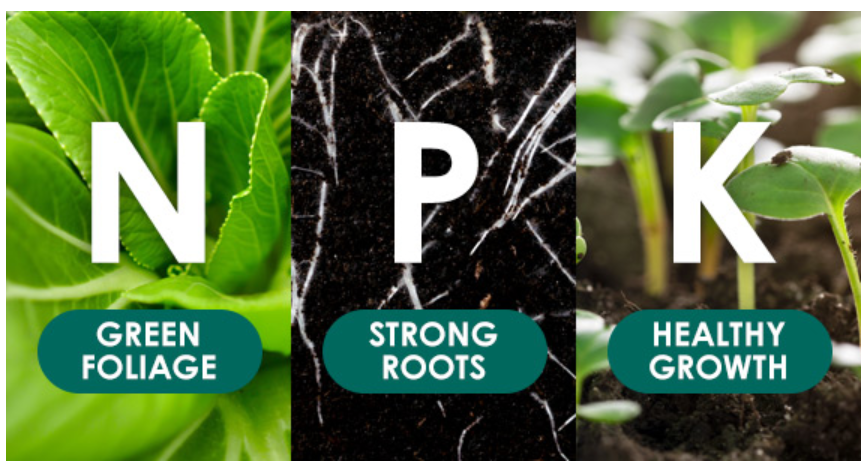The NPK value indicates the weight percentage of three basic nutrient components that the plant should have available for optimal growth and development:
- N stands for nitrogen, which is absolutely essential for plant growth.
- P stands for phosphorus, which promotes root formation, bud development, and flowering.
- K stands for potassium, which ensures plant strength, improves its resistance, and protects the plant from potential infections.

Fertilizers containing N-P-K elements are the basic nutrition for plants.
What is the composition of NPK fertilizer and how to understand the specific values it contains?
If the NPK value is 6-8-6, the plant nutrition includes 6% nitrogen, 8% phosphorus, and 6% potassium (by weight).
NPK fertilizers containing essential elements for healthy growth of plants are often referred to as so-called complete fertilizers. Sometimes you may also encounter the term triple fertilizers.
Fertilizer containing only phosphorus and potassium - double fertilizer or PK fertilizer - is a mineral supplement for extensive root systems of plants, and its use also often results in the formation of lush flowers.
Growers also extensively use simple fertilizers containing only one of the trio of the most important NPK elements. Simple fertilizer provides plants with an extra dose of nitrogen, phosphorus, or potassium. The number associated with each type of fertilizer again expresses the weight percentage.
Fertilizer containing NPK and its practical use:
- The consumption of nitrogen, phosphorus, and potassium is significant for most plants, so simple, double, and triple fertilizers with various NPK content are intensively used in growing plants in indoor conditions throughout the cultivation cycle.
- Basic soil fertilization at the beginning of vegetation is also important in cases where you repeatedly use a smaller growing space (garden, bed, etc.) for growing fruits or vegetables outdoors. Repeated cultivation in the same growing area results in lower soil fertility, as the nutrients are gradually depleted from the soil. Therefore, it is important to replenish them in the soil, which is where complete fertilizer comes in handy.
- natural fertilizer containing NPK


.jpg)




